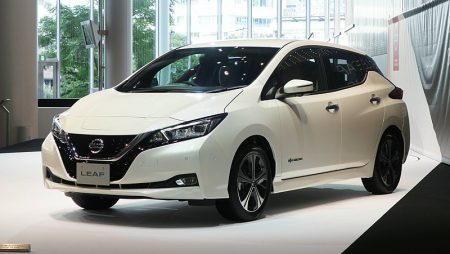On 18th November, Boris Johnson announced that no petrol or diesel cars and vans would be sold in the UK from 2030. We all knew it was coming, but the announcement still managed to send shockwaves through the media and the wider public.
The Prime Minister has labelled his ten-point action plan, which includes investment in sustainable energy and bettered public transport, a ‘green industrial revolution’.
One area which will receive funding to the tune of £1.3bn is the electric vehicle (EV) market. The UK will witness the introduction of significantly more charging points, while buyers will receive additional support thanks to a grant being implemented to aid those making the switch.
While the announcement has been met with backlash, it isn’t all doom and gloom. In fact, the electric vehicle market has been a saving grace over the last two years.
From Volvo Bolton to Volvo Warrington, the Swedish manufacturer’s investment in developing electric vehicles in-house will be welcome news for their UK retailers… Let’s take a look.
The picture over the past two years
New car sales had a poor year in 2019, there is no denying that, and it was diesel vehicles that felt the biggest pinch – the sale of new USD vehicles was down 2.3 per cent overall.
Of course, the plan to introduce additional ultra-low emission zones across the country alongside the impending fear of the ban on ICE vehicles was enough to discourage anyone from buying a diesel.
The blow that was dealt to the diesel market was softened in some respect by how the electric market excelled.
2019 saw sales of electric vehicles rise by 144 per cent. Why? Because motorists want fuel-efficient, high performance, low emission vehicles, and in the modern world we live in, thanks to stark developments automotive engineering, EVs offer exactly that.
Of course, 2020 has been particularly bleak for the automotive industry in all respects. Showrooms across the country having to shut their doors and manufacturing plants unable to take delivery of parts have further contributed to the lack of buying invoked by the recession.
However, once again, while the market itself has shrunk, new electric vehicle sales have built upon their already solid foundations – up 184% year-on-year in September.

The past
Way back in the early noughties and twenty-tens, electric vehicles had negative connotations. Poor mileage, expensive, and in most parts lacking in what Thierry Henry once described as ‘va va voom’.
The reputation was hardly unfair. If you went to buy an electric car, often these three attributes were true, and you were hardly spoilt for choice when it came to options either. The Prius changed the game admittedly, but even when it came to prominence, we were still left wanting more.
As the world as a whole began to develop a stronger environmental conscience, one by one, the big brands began to jump in: Jaguar, Porsche, Renault, Audi, Hyundai, and Nissan, to name just a few. The latter of the bunch, Nissan, with their innovative model Nissan Leaf, developed exactly what the average car manufacturer desired – a plug-in vehicle that had a mileage range of more than 200 miles, was powerful, and, perhaps most importantly, was affordable.
Read more: Air Quality News
It’s Time to Go Green!
If you would like to know more about Solar Panels and the PowerBanx range of home battery systems, and get a free instant quote, please complete our online form:

